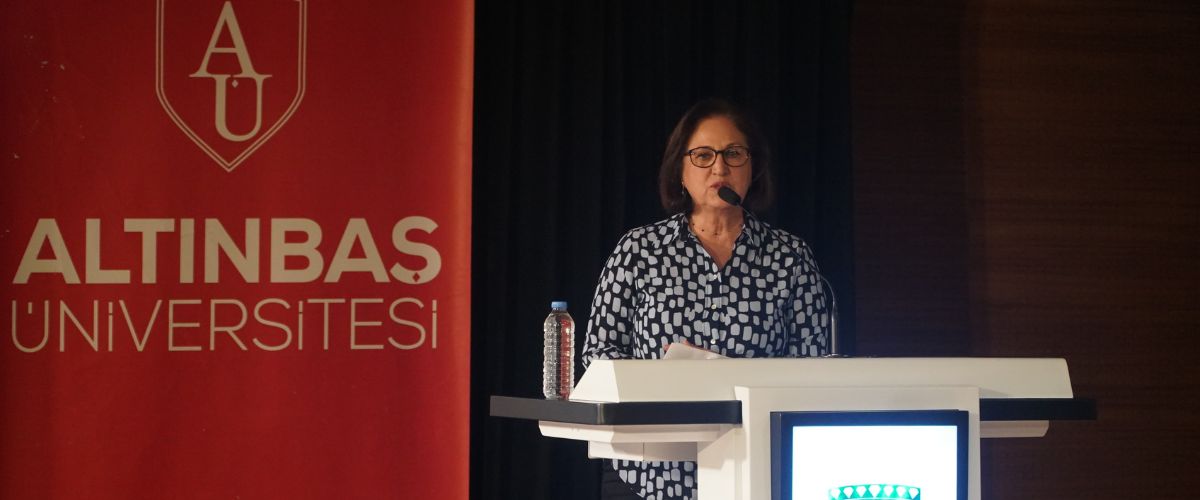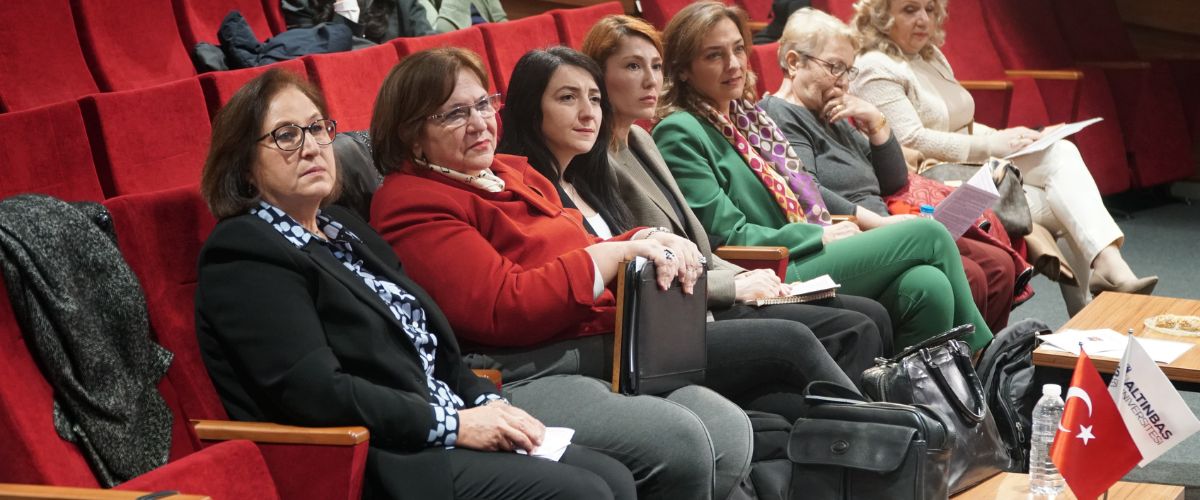Legal Sanctions in Preventing Violence Against Women
Altınbaş University Women's Rights Club and ILSA Law Club organized "Women's Struggle for Rights and Gains Conference". At the conference, the role of legal sanctions in preventing violence against women was discussed.
On the occasion of International Women's Day on March 8th, many events were planned to raise awareness in society. The first planned event, the "Conference on Women's Rights Struggle and Achievements," was jointly organized by the Altınbaş University Women's Rights Club and the ILSA Law Club.
The conference, held at the Gayrettepe campus, focused on the legal sanctions in international treaties regarding women's rights and preventing violence against women.
In her opening speech, Professor Şükran Şıpka, an expert in Civil Law and a faculty member of the Law School, reminded the audience that Turkish women gained civil rights about 100 years ago with the first Turkish Civil Code adopted by the Turkish Grand National Assembly on February 17, 1926.
Professor Şükran Şıpka delivered the message, "Today, we are working and making efforts to ensure that women adhere to the principles of the Republic and that other women also benefit from equal rights, do not suffer discrimination or violence, and to preserve the achievements of the Civil Code."
Pointing out that the root of gender discrimination lies in social influences, cultural norms, customs, traditions, and traditional and religious factors, Professor Şükran Şıpka emphasized, "Gender differences in the social sphere are also clearly evident in the legal field. From a legal perspective, I can say that in the first written legal rules dating back thousands of years, women have always been in a disadvantaged position compared to men and have not been able to benefit from certain rights."
Şükran Şıpka recalled that until the 19th century, almost all countries in the world had a similar situation, stating, "Until the last century, women's legal capacity and freedom of will in private law and their constitutional rights in the public sphere, such as political, social, and economic rights, were either nonexistent or very limited."
According to Şükran Şıpka, gender inequality means any distinction, exclusion, or restriction made on the basis of sex that prevents or nullifies the recognition, enjoyment, or exercise by women, irrespective of their marital status, on a basis of equality of men and women, of human rights and fundamental freedoms in the political, economic, social, cultural, civil, or any other field.
Şıpka stated that in order to achieve gender equality, it is only possible to create a social environment where individuals can fully and freely develop all their abilities. Inequality can only be prevented in developed and democratic societies. Therefore, the differences arising from genetic, physiological, and biological characteristics between women and men should not be considered within the framework of inequality.
Şıpka pointed out that the society's perspective on women also fuels violence against women. Despite the existence of legal regulations and criminal sanctions, their ineffective implementation renders them powerless in preventing violence. Şıpka emphasized that the solution lies in the enactment and enforcement of laws by a strong government and major reformers to change the societal perception. Şıpka concluded her remarks by stating:
"The continuation of Atatürk's ideas regarding the equality of women within the family and in social spheres, as well as the establishment of an ideal of modern, democratic, and secular legal order, is possible only by ensuring its continuity today."



